Whether you have an in-person or virtual interview, you’ll want to come prepared and give your best shot to get the role you’re aiming for. While it’s good to prepare for common questions that interviewers will likely ask you, the interview process doesn’t end there. There’s usually a time during the interview when the hiring associate will open the floor for any questions you may have.
Asking meaningful questions during this period gives you an edge over other applicants and reaffirms your interest in the role and the company. Below, we’re sharing the 50 best questions to ask in a job interview and some tips to help increase your chances of getting hired, so keep scrolling.
Asking the Right Questions During a Job Interview
When an interviewer encourages you to ask questions, you should have two goals. The first one is to evaluate the company itself and if the job is really for you. Working in a company is a commitment, so you’ll want to make sure that you, the company, and your role are all compatible.
Another goal is to prove to the interviewer that you are the best candidate for the position. Coming prepared is always a good sign, and interviewers will notice if you approach this segment of the interview with confidence and preparedness.
You can also achieve your goal of getting hired by asking insightful questions. Refrain from questions that are answerable by a simple yes or no. Instead, raise questions that require detailed answers. Ask about the company’s goals, struggles, future opportunities, developments, and more.
It’s also important to personalize your questions. Avoid generic language and make it applicable to your role. For example, do not just ask the interviewer what a usual day in the office looks like. Instead, ask how a usual day for you in this position looks. Apart from showing genuine interest in the role you’re applying for; you’re also helping the interviewer visualize you performing the job.
Don’t be too robotic. Ask questions that make this part of the interview a continuation of your conversation. For example, if earlier in the interview the hiring manager mentioned a project that you would potentially work on in this role, you can follow up with a question that brings up more detail about that project or ones like it. By letting the conversation flow smoothly and naturally, you’re also building rapport with the hiring manager.
Top Questions Focused on the Job
By asking questions specific to the job you’re applying for, you’re showing your interest and commitment to the role. Moreover, you should have a clear grasp of what your day-to-day responsibilities would be to set your expectations and avoid any surprises and frustrations.
- What does a typical day or week look like for this position?
- What are the most crucial things I must accomplish during my first 30, 60, or 90 days in the position?
- What are the most immediate tasks or projects that I should fulfill? Can you give me some examples of the projects I’d need to accomplish?
- May I know if this is a new role or if I’ll be replacing an employee who’s about to leave?
- How does your performance review process work? When and how often would I receive the evaluation?
- What metrics does the team use to assess performance for this role?
- What are some of the biggest hurdles that an employee taking this role would face?
- What are the skills and attributes needed to be successful in this position?
- Is there a chance for the major responsibilities for this role to change over the next six months? How?
- How does this role contribute to the overall success and growth of the company?
Best Questions Focused on the Company
Learning more about the company you may be working with will help you see if you share the same values and if you’re going in the same direction. Working with others who share your values will give you a greater sense of fulfillment and happiness in the long run.
Moreover, asking the following questions can give you an idea regarding job security. At the same time, you’re highlighting your commitment to the company.
- What goals are the company focusing on right now? How does the team help ensure these goals are met?
- What direction do you think the company will be moving in several years from now?
- I’ve learned about how the company started, but can you share with me how the company has changed over the years?
- What makes you excited about the future of the company?
- What can you share with me about new products, services, or development plans?
- How would you describe the most important values of the company?
- What steps does the company take to make sure its values are practiced and maintained?
Practical Questions Focused on the Interviewer
Raising questions related to the interviewer is one way to establish rapport with a potential colleague. It also means that you’re interested in them as a person and not just a tool to help you get the job. In addition, you’ll get an insider’s view of the working environment. You might also just learn how the interviewer started and progressed in the company.
- How long have you been working with this company?
- How has your role changed since you started working here?
- What is your favorite thing about being part of this company?
- May I know why you chose to work for this company?
- What is it about your job that gets you most excited in the next several months?
- What challenge(s) do you often or occasionally encounter with this job?
- Are there some future projects or initiatives that you’re particularly passionate about?
Smart Questions Focused on the Team
To help you find out what type of team you’ll be working with and determine if it’s the right team for you, try asking some of the following questions. These might give you a chance to mention some experiences you’ve had working with similar teams, thus reinforcing how you’re suitable for the role.
- Can you tell me more about the team I’ll be part of?
- To whom would I report directly?
- Who would I be working with most closely?
- What other units or departments will my team work closely with and how?
- Are you planning to hire more people for this team in the next six months?
- What are the strengths and challenges of the team?
- What kinds of skills do the current team lack that you think a new hire could offer?
Interesting Questions Focused on the Culture
Knowing about the company culture can help you determine if it’s the right company for you and if you’ll enjoy working there long term. You’ll also get a glimpse of how the company values employee happiness and work-life balance. Ask questions related to what matters to you in a company’s culture. Here are some ideas:
- What office tradition do you like the most?
- Can you tell me more about the work environment? Is the work generally more independent or more collaborative?
- What’s something different about working in this company from other organizations you’ve worked for?
- Does the company hold events with other departments or organizations?
- How do you usually onboard your employees? How does the organization ensure the same standards and opportunities for both remote and in-office employees?
- How has the company developed since you joined here?
- Is there anything that I should study or read before starting that can help me develop a shared understanding and stronger relationship with my colleagues?
- What does the team often do for lunch? Do team members spend time with each other outside of the office?
- How does the team create and maintain a strong, healthy relationship with each other?
Best Questions About Future Opportunities
While you’re still trying to get the job, it’s best to see what opportunities await you should you become part of the company. You’ll want to grow both professionally and personally. Moreover, asking questions about future opportunities will let the hiring manager see how dedicated you are to excelling in the job and not just simply showing up and completing tasks every day.
- How does your onboarding process work?
- Does the company offer professional development opportunities? How do these work?
- How are employees rewarded who excel in their roles?
- Will there be stretch assignments that can help me acquire new skills?
- Do you think the role will expand in the future?
- Does the company provide on-the-job training?
- Will there be an opportunity to represent the team or company at conferences and other events?
Common Questions Regarding the Next Steps
Before the whole interview ends, you’ll want to make sure the interview has all the necessary information they need to consider you for the job. At the same time, you want to know what to expect afterward, so ask these questions.
- May I know the next steps in the interview process?
- Are there any other questions that I can answer for you?
- Is there anything else that I have to provide that may be helpful?
By asking if they have final questions for you, you’ll have a chance to address any possible objections they may have. Moreover, you can clarify any questions they have regarding your qualifications for the role.
Questions You Should Avoid
Apart from learning the 50 best questions to ask in a job interview, you should also know what questions to avoid, so you won’t lose your chance of getting the role. Examples include the following:
- What will be my starting salary?
- Can you tell me about your leave policies?
- How soon do you promote or give a raise to your employees? How often do you give bonuses?
- Will I have my own office?
- Who are the top competitors of the company?
- Are there any other roles open?
- When will you make an offer to someone for this position?
- How soon can I file for vacation leave after getting hired?
- What is the worst part about working here?
Asking about the salary might create an impression that you’re only after the compensation. Besides, companies often indicate in their job ads the salary. Thus, avoid questions related to salary, promotions, vacation and sick leaves, and other benefits.
You don’t want to sound arrogant or impatient with questions like if you’ll have your own office or if you got the job. Instead, show that you respect their hiring process, and let them approach you first regarding their decision.
Moreover, avoid asking questions that can be answered with quick research. You’re expected to search about the company and the role, so keep your questions relevant and personalized.
Final Thoughts
A job interview is a two-way process. The company needs to see if you’re the right person for the job and you need to determine if the role, the company, and its culture are what you’re looking for. When the interviewer asks you if you have any questions for them, use these 50 best questions to ask in a job interview.
Want to make sure you’ll ace your job interview? Our interview experts are here to help you prepare for your interview. From creating impressive resumes to working with a professional coach, ResumeSpice is equipped to help you realize your career goals.






